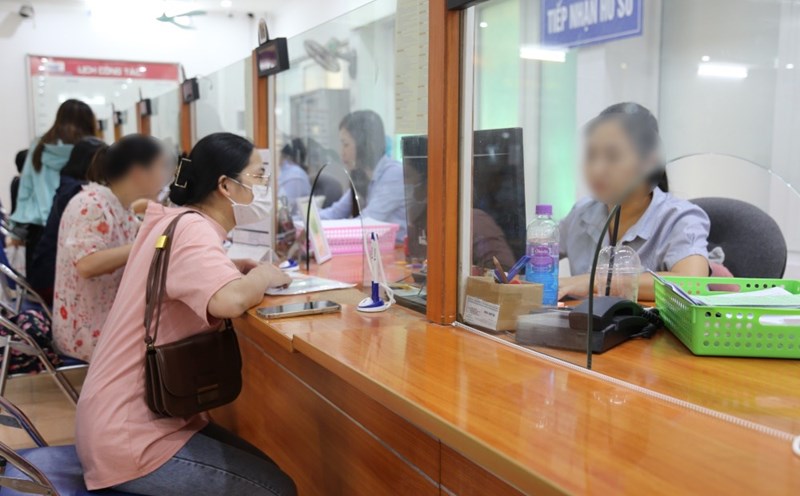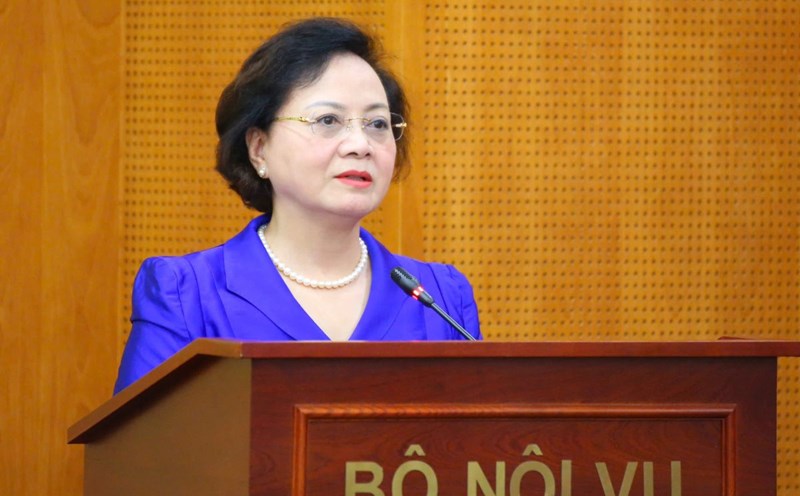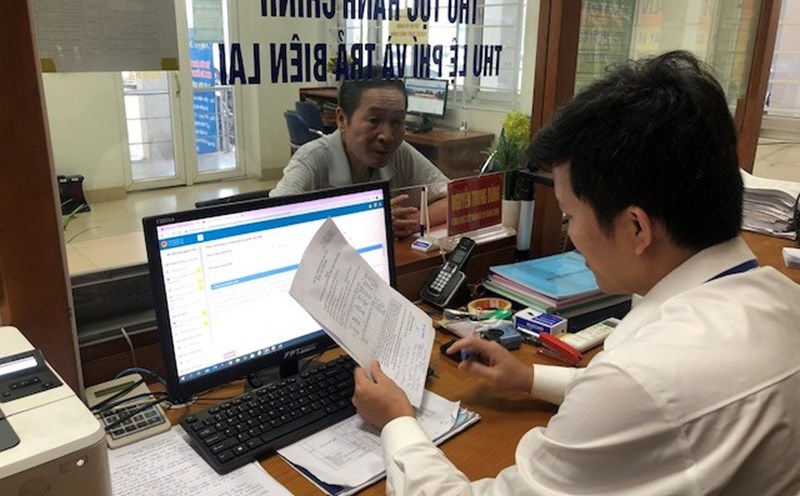At the National Online Conference on professional training for commune-level cadres, civil servants and public employees in the field of state management of the Home Affairs sector on August 9, Minister of Home Affairs Pham Thi Thanh Tra said that after one month of implementing the two-level local government model, the apparatus operated smoothly, without interruption and basically achieved the set goals.
However, to improve the effectiveness and efficiency of government operations, the quality of service needs to better meet the aspirations of the people. Many localities assess that the quality of commune-level cadres is not uniform; some places still have a situation of "sitting in the wrong place", meaning that the arrangement of civil servants is not in accordance with the expertise or does not meet the requirements of the job position.
Minister Pham Thi Thanh Tra emphasized: At this time, it is necessary to actively review and encourage the dismissal of those who do not meet the requirements, to focus on improving the quality of the commune-level civil service team. This is a very important task and there is still time to train, foster and coach the team of cadres, civil servants and public employees to meet the tasks in the new situation".
Supporting the viewpoint of the Minister of Home Affairs, cadres and civil servants who do not meet their tasks should be encouraged to quit their jobs, giving way to people with higher capacity and qualifications.
However, not everyone evaluates their abilities objectively and fairly.
In fact, most vulnerable people often blame others, the collective or for some reason, few people admit that they are not capable, affecting the common work.
The A, B, C polls in agencies and organizations are no longer suitable, because the majority are very emotional and petty.
Therefore, to evaluate objectively, fairly professional capacity, and work completion level, it is necessary to have scientific and transparent measurement tools. Minister Pham Thi Thanh Tra once announced that there will be a KPI for civil servants.
The Ministry of Home Affairs is urgently coordinating with the Central Organizing Committee to develop and submit to the Government a Decree on the assessment and classification of civil servant quality. This decree must propose the monitoring and evaluation of civil servants according to KPI ( Criteria for performance results of civil servants' duties) to start implementation from January 1, 2026.
When applying the civil servant KPI, that is the basis for evaluating work results, those who are weak must accept it because there are specific "measurement numbers", no blame, no emotion, no general comments.
With work results, encouraging people who do not meet the task of quitting their jobs will be convincing.












